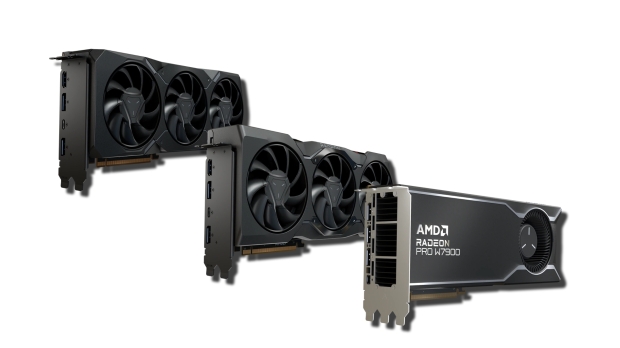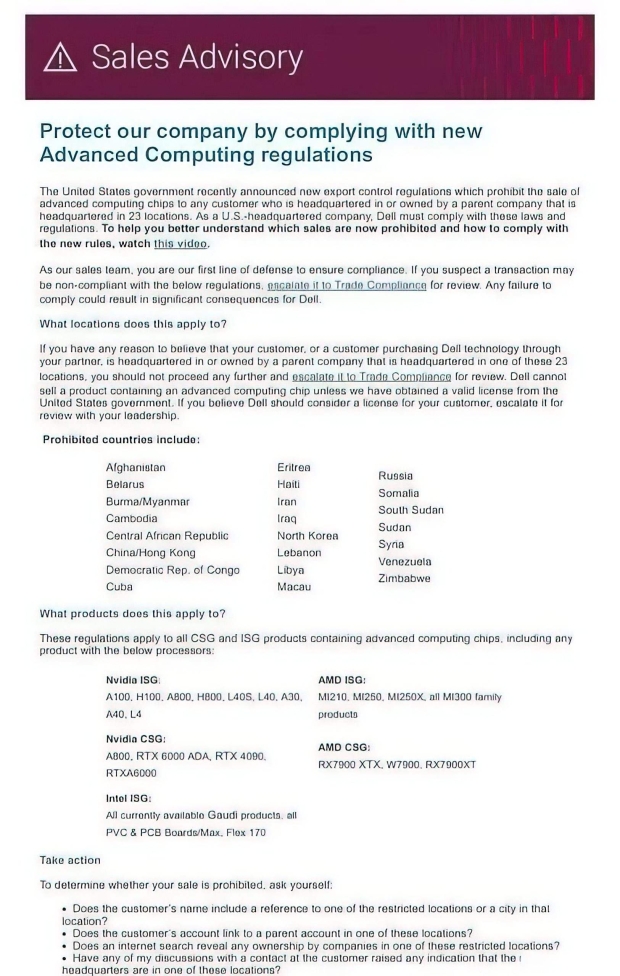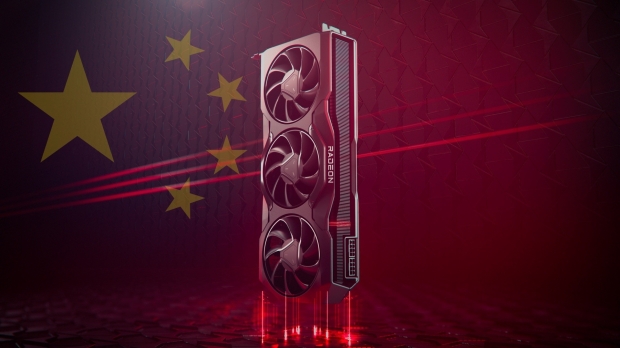Dell has issued an internal Sales Advisory document to its salespeople to not sell hardware with AMD's most powerful RDNA 3 graphics cards to customers in China and other countries outlined by the U.S. government's recent export ban. The idea is to stem the flow of AI hardware to certain countries, and for Dell, this now includes the Radeon RX 7900 XT, Radeon RX 7900 XTX, and workstation options like the Radeon PRO W7900, which is a little strange.

Dell to stop selling AMD systems with Radeon RX 7900 XT, Radeon RX 7900 XTX, and workstation options like the Radeon PRO W7900 in China.
The Export ban covers raw GPU power, which has led to the most powerful gaming GPU being banned in China. The GeForce RTX 4090 no longer appears on NVIDIA's Chinese website because it's so powerful it enters the realm of high-end AI hardware like NVIDIA's H100. Even though the Radeon RX 7900 XTX is powerful, it's no GeForce RTX 4090 - and as far as we can tell, it shouldn't require a special export license and doesn't fall with the current export restrictions.
Is this Dell misinterpreting the new export rules or a case of them being extra cautious? The list also includes AMD's AI Instinct MI210, MI250, MI250X, and MI300-series datacenter GPUs, which makes sense, but the inclusion of the Radeon RX 7900 XT doesn't.

The alleged Dell Sales Dvisory, image credit: Wccftech.
To put this into perspective, the Radeon RX 7900 XT is roughly on par with the GeForce RTX 4070 Ti in terms of performance while falling behind the beefier GeForce RTX 4080. Two NVIDIA GPUs are still readily available in the region and are not part of the export restrictions.
How it works is that companies need to obtain a special export license for non-datacenter products from the U.S. Department of Commerce if performance exceeds 4800 points on the Total Processing Power (TPP) scale. TPP is a measure of processing power while also factoring in die size. Based on the criteria and measurements, it's widely believed that the TPP of the Radeon RX 7900 XTX sits at around 2000. Well below the 4800.
It'll be interesting to hear from Dell regarding this supposed Sales Advisory halting sales of high-end Radeon rigs in countries like China, so stay tuned.



